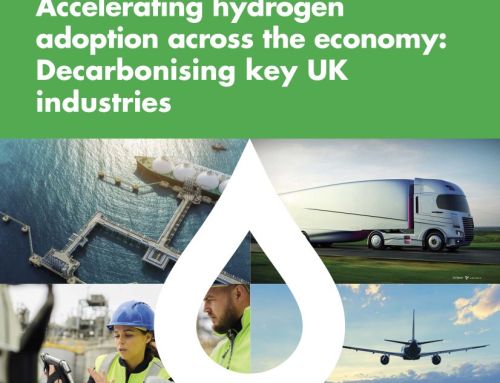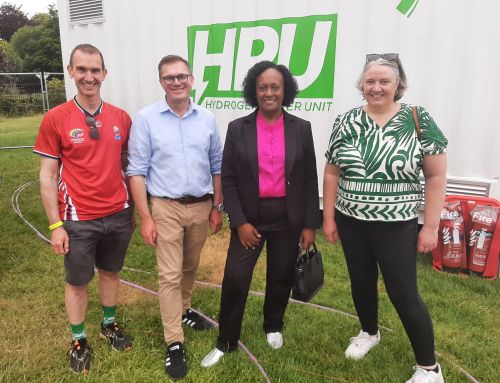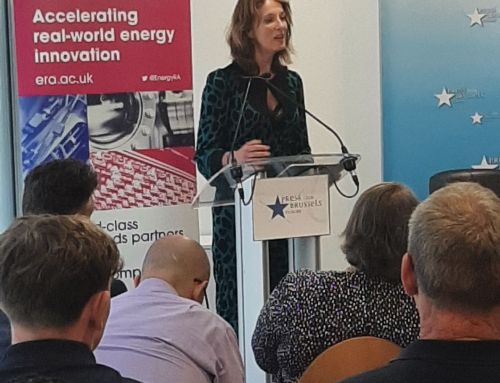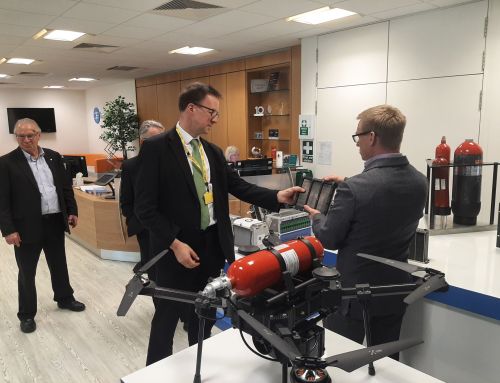Devolved regional powers offer the chance to make a difference to net zero
In this Op Ed from the Times (13/07/21), Andy Street, Mayor of the West Midlands explains why he believes that the region is the ideal place for a new green industrial revolution to start and why ERA is playing a critical role.
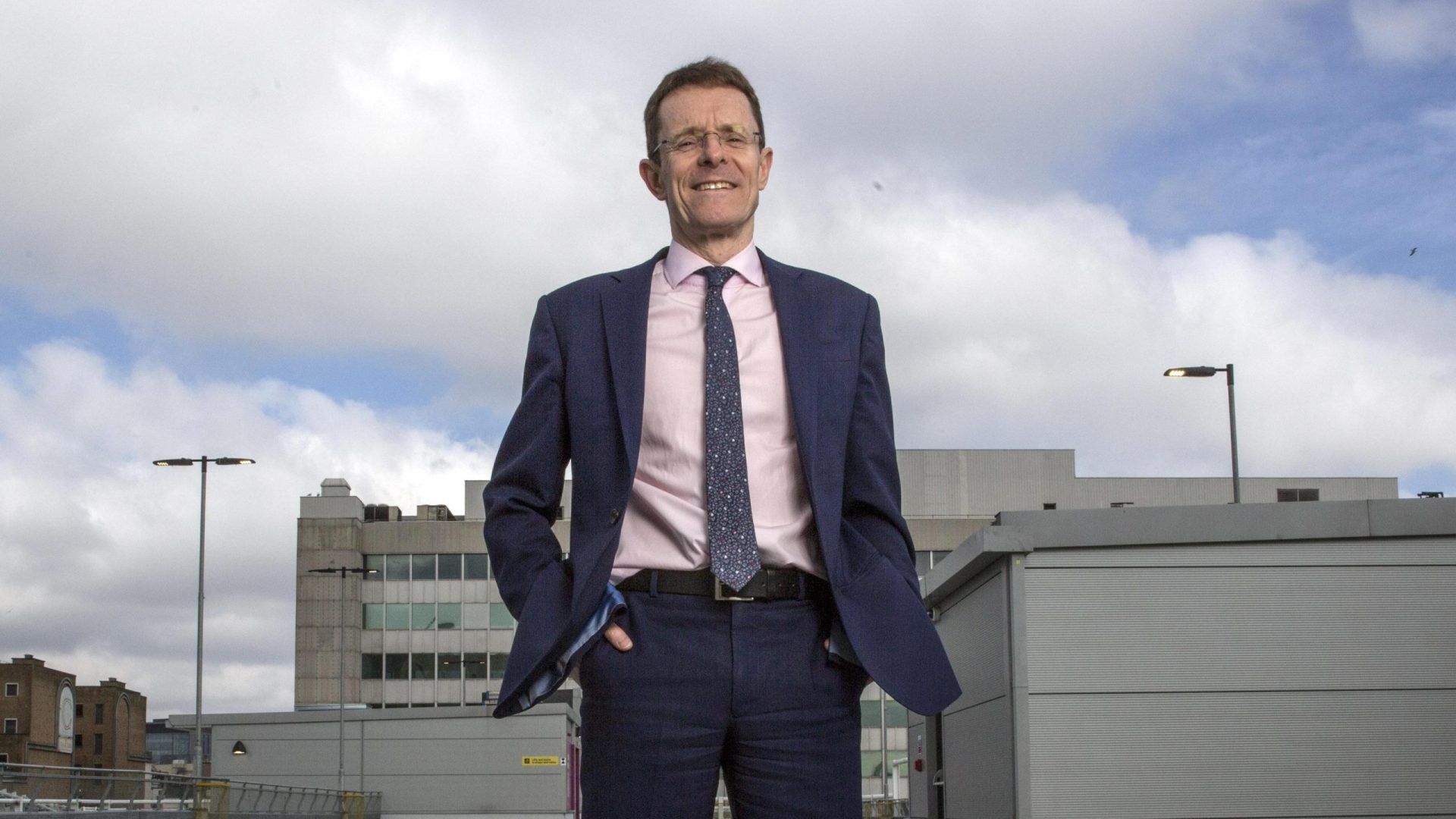
Devolved regional powers offer the chance to make a difference to net zero
By Andy Street, Mayor of the West Midlands (first published in the Times 13/07/21)
It is not every day that leaders from across the world unite with their English counterparts. But such is the severity of the climate crisis, that is exactly what is happening. As major global cities and regions we are all facing the same threat of unsustainably high emissions, but we also all share the same view of how this crisis can be conquered – by empowering local leaders to take greater responsibility over energy.
That will be the message delivered loud and clear to the Government when Metro Mayors, core cities, and local authority leaders from around the world meet with ministers at the UK’s first International Net Zero Leadership Summit co-hosted by the West Midlands and UK100.
Readers might say that as local leaders of course we would argue for more power, but there’s clear evidence as to why energy devolution deals – whereby regions are given access to new funding pots but also set carbon budgets for which they are accountable – would be a major step forward in tackling the climate crisis. A recent report from the Local Government Association revealed that regional and local leaders are key to achieving net zero ambitions. This is because we control or strongly influence a third of carbon emissions – and have proven we can deliver improvements.
In the West Midlands, the home of the green industrial revolution, we’ve already got five energy innovation zones pioneering new approaches to managing energy demand.
The likes of National Grid, Cadent, Tyseley Energy Park, the University of Birmingham, and Energy Research Accelerator are all working to develop greener practices that can be rolled out across the UK’s cities and regions; and our automotive sector is leading the way in de-carbonising transport by researching and producing state-of-the-art battery technology.
If you take a specific area like public transport, we can point to hydrogen buses, battery-powered trams, and new cycle and e-scooter hire schemes, all of which are being rolled out under local leadership. We’ve proven when we have the powers we can make the best use of energy – a scarce and precious resource that cannot be wasted – so why not trust us to go further?
Take retrofitting people’s old homes for example. We know that the older the house, the less efficient energy use is when it comes to heating – and there are a lot of older houses right across the country. Addressing this without asking people to compromise on their standard of living is not easy, and calls for a mass retrofitting programme just as the Prime Minister has announced.
Now is the time to back local leaders to take responsibility for delivering this. We know our areas, from the workshops of the Black Country to the Victorian city suburbs, and can overcome the issues that will arise when trying to retrofit such a vast array of differing buildings.
We can also use our existing devolved powers to ensure local workers have the right skills to move into the jobs that will be created, such as by putting on specific training courses and bootcamps in areas like insulation and double glazing which we know will be key to retrofitting. Not only would a devolved model help make the Government’s mammoth task more manageable, but it also means the programme could be delivered at pace and create thousands of jobs in the process. The West Midlands already has plans in place to retrofit more than 240,000 homes, all we need is the funding that would be guaranteed from a devolution deal to get on with it.
As well as responsibility for retrofitting, an energy devolution deal would also give us the resources to be able to invest in, and maximise, local untapped innovation and potential. In recent weeks I’ve met two start-up companies in central Birmingham – one that has designed unique renewable large-scale batteries to power cars and homes, and another that uses the power of 5G technology to control wind turbines in Northern Scotland and across Europe. Both of these businesses will have roles to play in helping the West Midlands reach its carbon neutrality target of 2041, but without the right powers and funding it is difficult for us to help them grow to reach their potential.
We want to be able to intervene and act quickly in a coordinated way with our regional partners when we spot opportunities such as these that could be pivotal in our race to net zero – but we can only do that with the right funding.
One way to provide this cash to local leaders could be through energy levies. Consumers are already paying these levies so it would come at no extra cost to them, but Government can decide to have these funds retained locally rather than centrally. With that guaranteed money we could not only invest in lower carbon energy solutions, but also provide that key link between energy providers and users to ensure energy is being provided where it is most needed.
The West Midlands in the industrial revolution was a time of fire, steel and iron that energised innovations in business and technology and had huge global impact. Now, with its history, heritage, and global reach, the West Midlands is the perfect setting for a new, green industrial revolution, inspiring change across the globe.
It is fitting that we should be the region that hosts the UK’s first International Net Zero Leadership Summit, and it would be fitting for us to lead the way on a devolved energy model.
